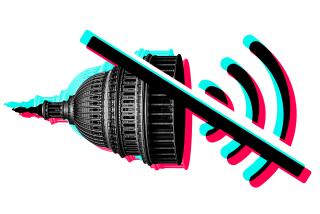Falling CD sales portend more changes
- Share via
When you’re not inclined to give away your product for free, make your customers believe that they’re getting something for nothing.
That’s the thinking behind some of the offerings music fans may see this year as the recording industry scrambles to offset losses from plunging CD sales and find new sources of revenue when many people simply download music for free.
Business models that fans are likely to see more of include music subscriptions bundled with the price of Internet access, and services such as Nokia Corp.’s upcoming Comes With Music, which would give users of select mobile phones a year’s worth of unlimited access to music for no extra charge.
Music companies also are expected to license songs for more ad-supported websites such as imeem.com, which lets visitors watch videos or listen to full-length tracks posted by other music fans for free.
Major recording labels, long criticized for being slow to adapt to changes brought about by the Internet over the last decade, are under pressure to explore new ways to get music fans to pay for music, leading to more choices for consumers.
In 2007, the recording industry arguably took the boldest steps yet.
After years championing the necessity of copy-protection safeguards on digital music, three of the world’s biggest recording companies agreed to license their music for sale online as unprotected MP3 files. Many analysts expect the last holdout, Sony BMG Music Entertainment, to follow this year.
That’s an important step for music lovers hesitant about buying digital music because songs are generally tied to specific devices. Apple Inc.’s iPod players, for example, can’t play copy-protected music not bought at Apple’s iTunes store.
“It seems clear there’s an accelerated pace of change that comes hand in glove with accelerated decline in traditional business,” said Eric Garland, chief executive at BigChampagne Online Media Measurement, which tracks online entertainment.
Recording company executives who once saw new technology as the enemy now seem to see it as a lifeline.
The major labels -- Sony BMG, Vivendi SA’s Universal Music Group, Warner Music Group Corp. and Britain’s EMI Group -- declined to comment.
In a recent memo to employees, Warner Music Group Chairman Edgar Bronfman Jr. touched on the importance of developing new areas of digital music. The company’s stock price has plunged more than 75% over the last year.
“There’s no denying that WMG and the industry as a whole have been struggling for almost a decade now with the challenges and opportunities that the digital space presents,” Bronfman wrote. “The recent trend of dramatic changes in the recorded music market will continue. . . . And, though it’s a cliche, it’s a cliche because it’s true: Technology will also provide us with new opportunities.”
Bronfman suggested that the industry this year would pursue a way to “monetize the unauthorized flow of our artists’ audio content on the Internet.”
That could involve striking deals with Internet service providers to help compensate labels for the millions of songs swapped online.
Another approach involves Internet service providers offering a pricing tier that comes with unlimited music downloads or faster download speeds that might be attractive to those who download a lot of music files.
Last year, Universal Music began testing an unlimited music download service in France offered through broadband provider Neuf Cegetel.
Then there’s Universal Music’s Total Music, which is expected to extend what Universal is doing with Nokia’s Comes With Music to devices including personal computers and digital music players, with the cost of the music built into the price.
Internet users collectively download about 1.1 billion songs from file-sharing networks every month, according to BigChampagne. So the music industry’s success could be tempered if those people saw little value in digital music without copy-protection strings or services offering feels-like-free music.
Sales of digital tracks at iTunes and elsewhere surged 45% last year compared with 2006, according to Nielsen SoundScan. But digital music still accounts for a small portion of overall music sales, and U.S. album sales in CDs and other physical formats dropped 15% during the same period.
Combined, the number of albums sold declined 9.5%.
“The industry for the last several years had hoped that eventually the pain would subside and they expected that eventually the market slowdown would level off,” said James McQuivey, media and technology analyst at Forrester Research.
Instead, he said, the recording industry saw CD sales falling even faster.
More to Read
The biggest entertainment stories
Get our big stories about Hollywood, film, television, music, arts, culture and more right in your inbox as soon as they publish.
You may occasionally receive promotional content from the Los Angeles Times.








